

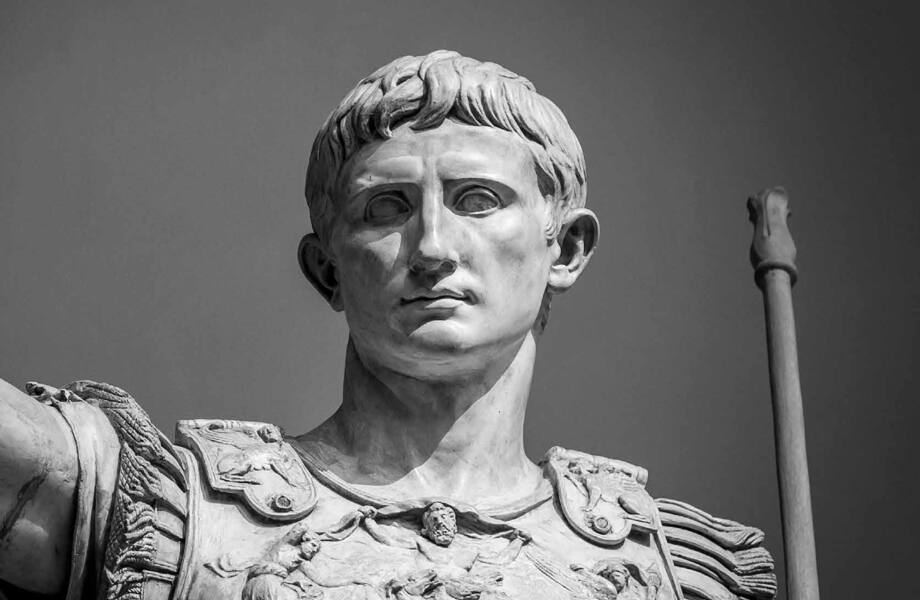
Etruscan, Roman, war and a magnificent empire. No other country has played a more vital role in the cultural and social development of Europe. There is a reason you speak a certain language, think it's okay to drink red wine sometimes and not think it is okay to murder your neighbour.
You guessed it – all this was founded thousands of years ago on the Italian peninsula in the Mediterranean.
Here's everything you need to know about Italy's history in ten minutes. To make it extra easy for you to remember, I have divided Italy's history into nine parts. We start with the era before Roman times and end in modern times.
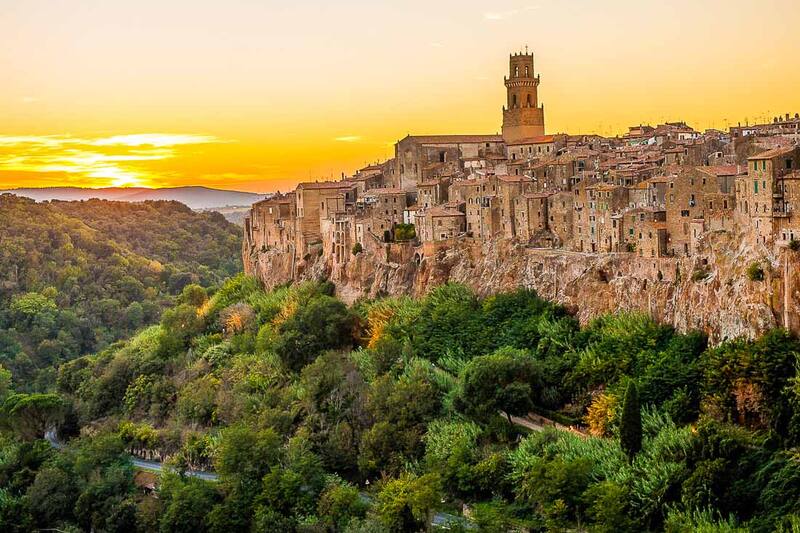
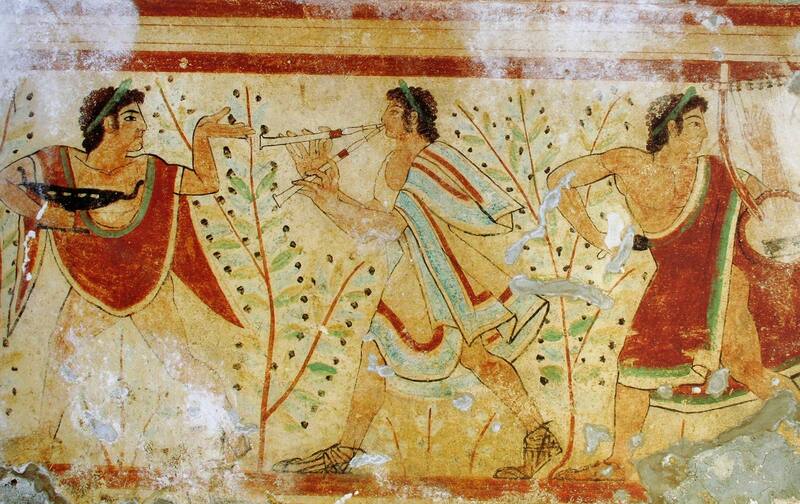
Let's start about 1000 years before Christ. The Italian peninsula is inhabited by Greeks in the south (including Sicily), Celts in the north and Etruscans in the centre. The Greeks brought some customs from ancient Greece and, to some extent, laid the foundation for what would become Roman culture a few hundred years later. Among other things, some philosophy, science and mythology are imported. In principle, all the gods worshiped by the Greeks are also represented by the Romans, though by other names.
The Celts in the north can be ignored. Their legacy on Italian culture and history is minimal. The Etruscans in the middle are much more critical. Their civilisation dominated the middle part of the Italian peninsula before Roman times, mainly by technical superiority over their neighbours in the north and south.
Then, there were some other guys: a bunch of tribal people who inhabited the lower middle part of Italy, between what is today Rome and Naples. One of these tribes was the Latins. The Latins would become one of the most successful civilisations in world history, but of course they did not know this yet.
They would spread all over the Mediterranean in the south, and all the way to Scotland in the north. There is a very high probability that both you and I have a distant ancestor in this particular tribe.
One day, the Latins decide to settle on some hills by a river we today call the Tiber. The location is perfect, and it quickly becomes a permanent settlement. They call their city Rome.
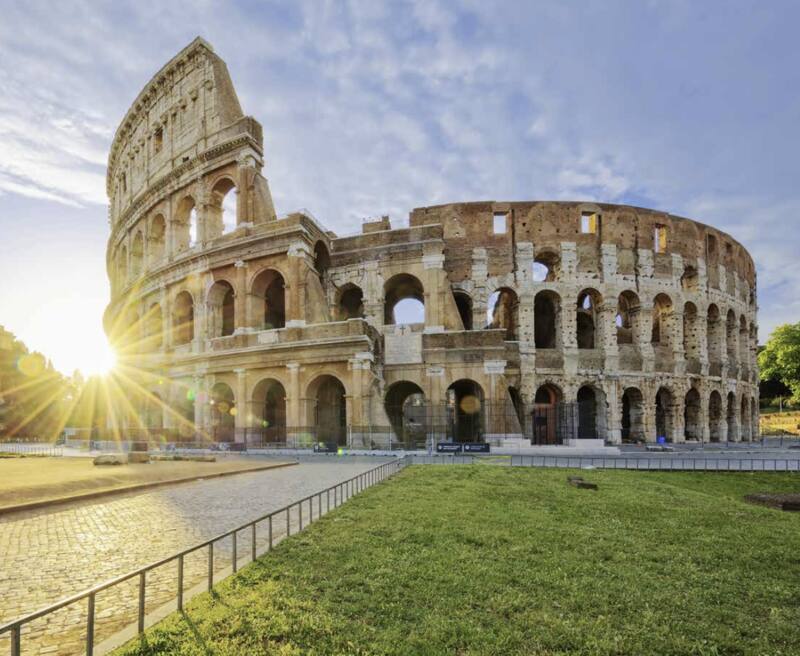
The land around the city of Rome was sensationally fertile. The river offered a convenient way to transport goods. The number of inhabitants grew dramatically during the first centuries, and Rome rapidly established itself as the centre of the area.
Surrounding cities were either conquered by military force or annexed by an ingenious invention they called the republic. It was all quite simple, and the same plan was repeated over and over again. The Romans marched to the city they wanted to put their hands on, and then lined up their soldiers just outside the city walls.
Then the local king got two choices: either we murder you, rape your women and burn down your city. Or you voluntarily join our fine republic, which we call Rome. As a nice bonus, your leaders will be allowed to join something we call the Senate and be able to take part in deciding all over the kingdom.
Can you imagine what most of them chose? You guessed it right. In record time, Rome took control of the entire Italian peninsula. Subsequently, they conquered significant territories in present-day France, England, Switzerland, Germany, Spain, the Balkans, Turkey, Syria, Iran, Israel and the entire North African coast – all the way from Egypt to Morocco. The Mediterranean became an inland sea to Rome.
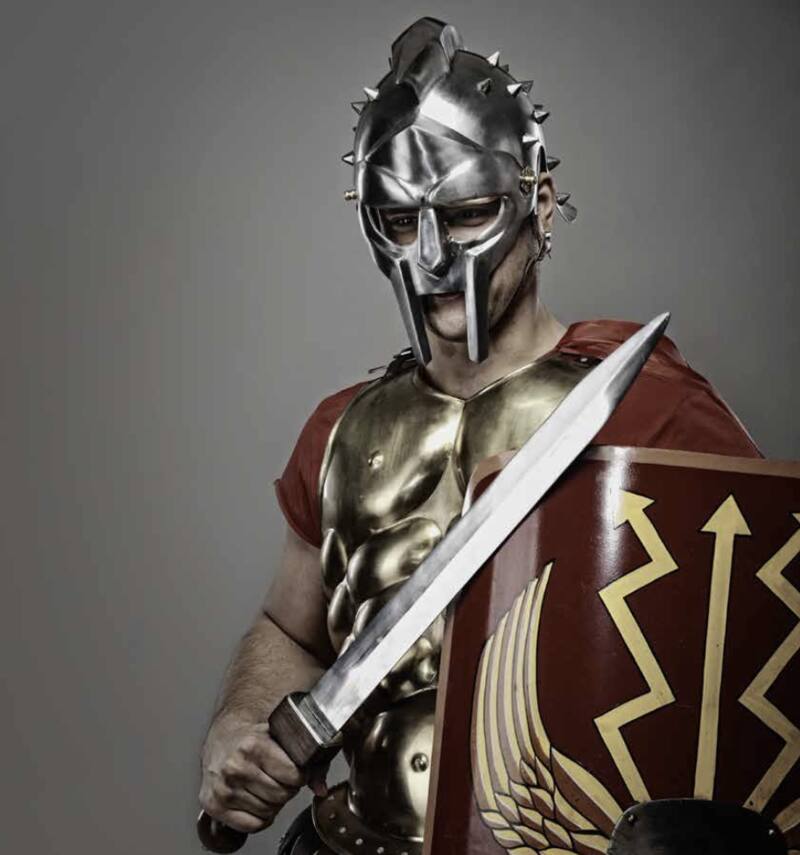
In 27 BC, a man named Augustus came to power. He had somewhat different ideas about how the kingdom should be ruled. He disbanded the Republic and proclaimed himself the CEO of everything. He became the first emperor of the Roman Empire.
In the period that starts with Augustus, a relatively peaceful and stable time begins, without too much violence or threat of violence from the Roman side. During this time, which lasts for hundreds of years, the Empire flourishes. Rome is quickly becoming the political, cultural and economic hub – in the entire known world. It is this period that is called Pax Romana. At its peak, the Roman Empire would have nearly 100 million inhabitants – about a quarter of the entire planet's population.
The capital – Rome – came to have an unimaginable one million inhabitants. Another important event is happening in the meantime. It was an event of great significance to the whole of Europe's history. Everything takes place in a remote province in the east – Judea.
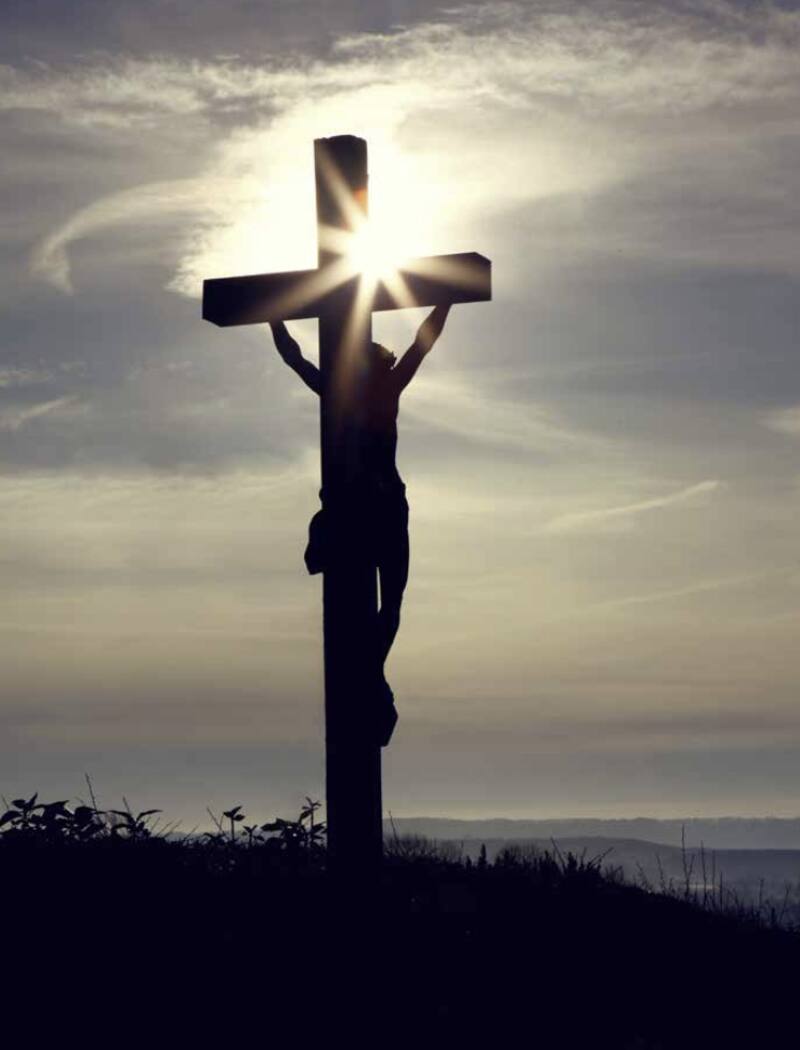
In year 0, a Jew was born in Bethlehem. Bethlehem was located in the province of Judea, which is the current Israel (or Palestine, depending on who you ask). His name was Jesus and he was both kind and wise. In addition, he could perform magical tricks. According to the story, he could walk on water, and heal the lepers. He also mastered the best party trick ever – turning water into wine – and thus allowed the party to continue for a few more hours.
Jesus preached a modern message based on love and reconciliation. A message that was very different to the more violent Roman style. This the Romans could not tolerate. They wanted to murder and oppress much more than Jesus thought was okay. Therefore, they crucified him on a a hill outside Jerusalem. This was an extremely bad decision. Jesus was far more popular among the locals than the Romans thought. They had created a martyr, and Jesus hanging on the cross became one of the most essential symbols in world history.
His closest friends, his so-called apostles, founded Christianity. They took the task of spreading Jesus' message with the utmost seriousness. In the beginning, the Romans did not want to listen at all. Instead, they resisted fiercely for over 300 years. Then they got tired of all the beating and slaughter of Christians and converted. They became the most Christian people in the world, founded the Vatican and appointed a pope. The Catholic Church – the world's most powerful religious community – saw the light of day.
The impact of Christianity on our culture and our values is unparalleled. Whether you believe in God or not, you behave like a good Christian. You avoid stealing candy at the supermarket. Refrain from having more than one wife. Even if you really want to, you don't sleep with your friend's wife. You don't murder even your worst enemies. Most often you are at home and relaxing on Sundays. All of these are Christian values, summarised in the Ten Commandments.
Christianity is so important to our culture that we even base our time on when its front figure was born. On the computer screen in front of me it says Saturday, July 6, 2024, right now.
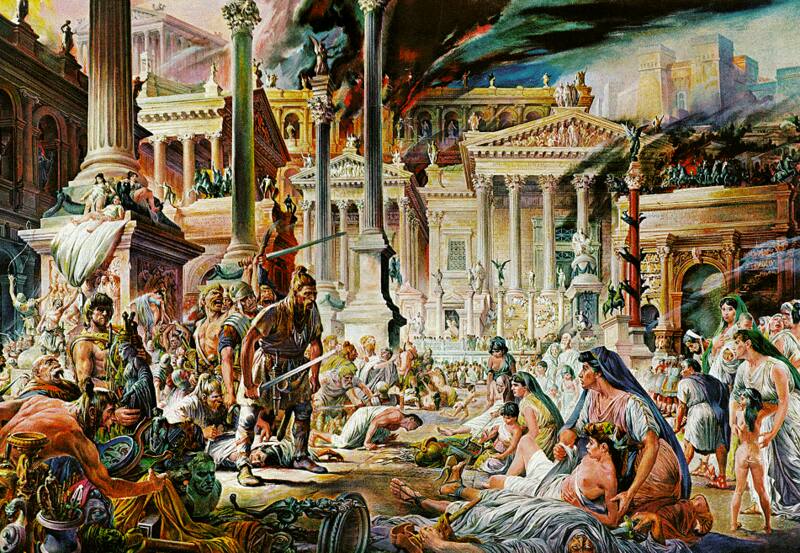
Around 300 AD, things worsened for the Roman Empire. The kingdom was divided into two parts, one western and one eastern. The eastern part becomes Byzantine civilisation, with the capital of Constantinople. This city we call Istanbul today.
Germanic tribes challenge the northern border of the western part. A full-scale invasion from the north leads to the collapse of Rome. Then there is general chaos on the Italian peninsula until the year 1200. First come the Goths, from the north. Later, the peninsula is again conquered by the ancient eastern part of Rome. All of a sudden the Roman Empire was put back together, but with the capital moved to Constantinople. Yes, and with a new name – the Byzantine Empire.
Messy? Wait, there's more. The Catholic Church lived on in central Italy. In the year 800, they appointed Charles the Great as Emperor of Rome. The Byzantines then retreat to the southern Italian peninsula. The north becomes part of Charles the Great's realm, including today's France and Germany. However, the collaboration between Charles the Great and the church is not going so well. Soon they are at war with each other instead. Everything looks dark. Like most of the Middle Ages.
Byzantine civilisation, i.e. the eastern part of Rome, lived on until 1453, when Constantinople finally fell. The Roman Empire existed in various forms for nearly 1,500 years. Quite impressive for a small tribe that once built a city and called it Rome. Right?
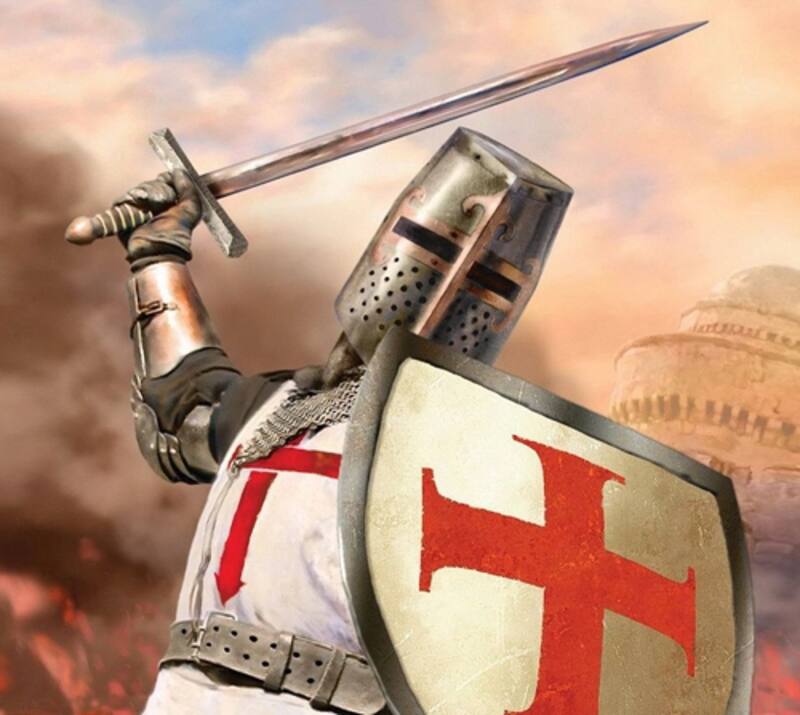
The Crusades were a series of enthusiastic attempts by the Catholic Church to spread Christianity, especially in the east. The purpose was to liberate the lands in the east from Muslim rule forcibly. The first crusade was in 1095 and the last in the 1400s. The crusades often failed their goals. What they did very well, however, was spread a very bad reputation about Christian doctrine and culture. A bad reputation that the west suffers from in the Middle East today.
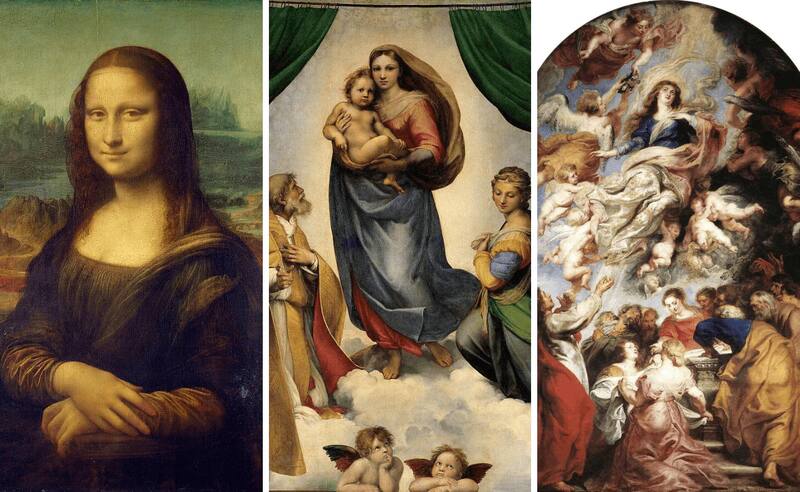
At the beginning of the 15th century, the dust had settled from the chaos and misery of the Middle Ages. The Italian peninsula now consists of several city-states: Genoa and Venice in the north, Florence and Siena in the middle, and Rome and Naples in the south.
The city-states were fairly equal in military capability, and peace prevailed. During this period, the most affluent families built up enormous wealth. The Medici, who lived in Florence, is the most famous of these families. The Medici family sponsors local hipsters like Leonardo da Vinci and Michelangelo.
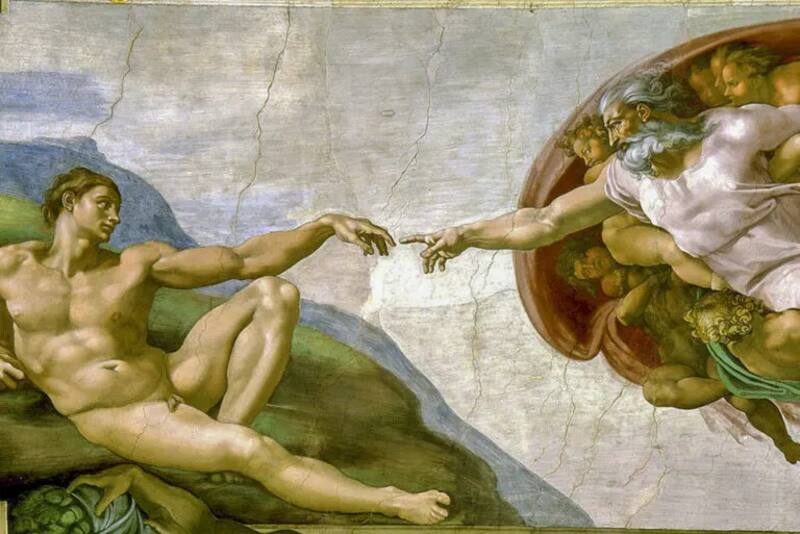
Wealthy families in other cities do the same. The Este family in the city of Ferrara invests in music and theatre. Milan invests in metal and armour art. Venice is renowned for its stunning glass. This gave rise to an explosion of art, literature, music and architecture in the mid-1400s – what we call the Renaissance.
Italy is packed with Renaissance art. Every major city has architecture, sculptures and art from this period. Most famous is Florence and the Uffizi Museum. Here you will find works by Leonardo da Vinci, Giotto, Botticelli and Michelangelo. Some (mainly Italians) claim that the total value of the art in Uffizi is higher than in all museums in Paris – altogether.
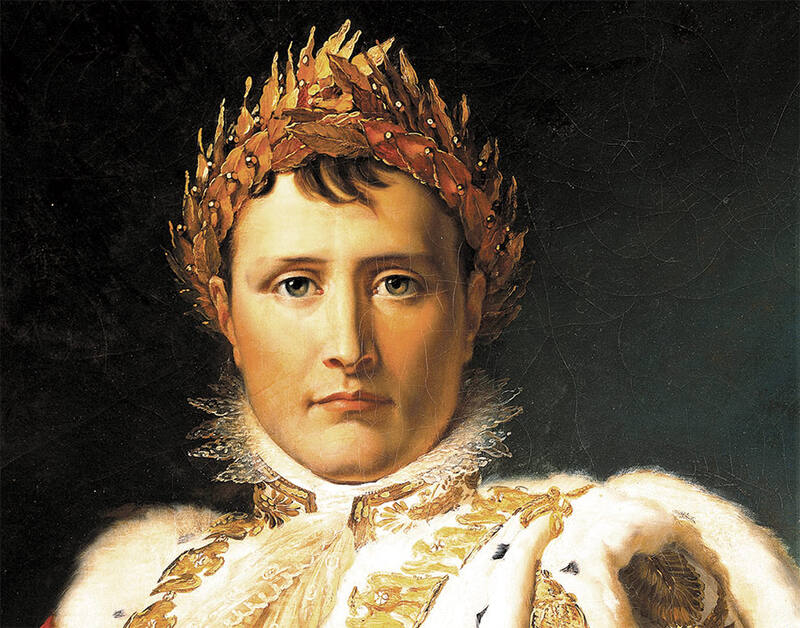
Hello, 19th Century. Into the scene now comes a young Frenchman named Napoleon. A military genius that aims to conquer all of Europe. In the beginning, his plan goes brilliantly. Large parts of Europe, including northern Italy, became part of the French Empire – with Napoleon himself as emperor.
Then he makes a small mistake. He attacks Russia in wintertime. His army freezes their butts off in the Russian winter and suffers enormous losses. Napoleon's career is over. In order not to start any more wars, the French relocated the little troublemaker to a small island in the Mediterranean.
After the war, a major international political conference is held between Europe's great powers. It takes place in Vienna 1814-15 and is of great importance to both the history of Europe and Italy. During this conference, Europe's map is redrawn. France loses all its victories from the war. Poor little Poland is being incorporated in Russia.
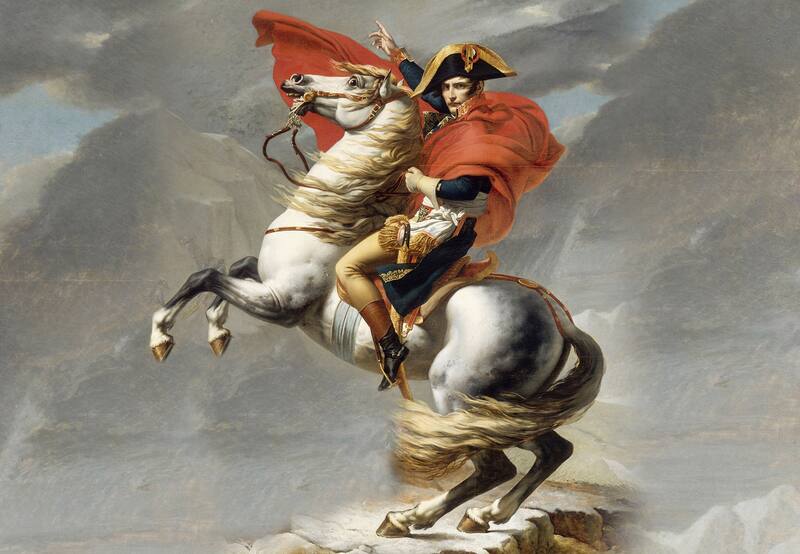
The countries of the Italian peninsula regain their independence and return to consist of a number of city states – including Piedmont and Modena in the north, Tuscany, Florence and Rome in the middle and Naples in the south. The year is 1820, and it is now that the process of uniting these city-states and creating modern Italy, starts. This was complicated. However, two revolutions and three civil wars later it was done – in 1861 Italy was united as a country. In 1871 the capital was moved to Rome – after the Pope, with a little violence, was persuaded to become part of the new country.
Essential names to remember: King Vittorio Emanuele II, General Guiseppe Garibaldi, Prime Minister Cavour and Giuseppe Mazzini. The unification of Italy is considered to be the result of these four gentlemen's hard work. That is why you see so many streets, squares, schools and institutions in Italy named after them.
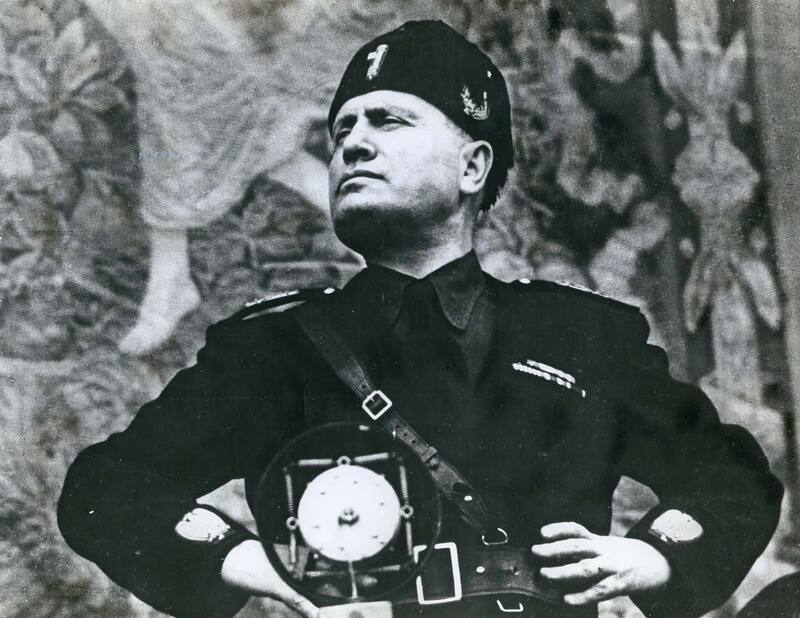
On June 28, 1914, a young Yugoslav nationalist named Gavrilo Princip shot Archduke Franz Ferdinand in Sarajevo. This would trigger one of the greatest and most disgusting conflicts of modern times – the First World War.
When the war broke out, Italy was allied with Germany and Austria-Hungary and was expected to attack France. That would not be the case. Instead, Italy switched sides and formed an alliance with the other team – Britain, France and Russia. In 1915, Italy invaded Austria in the area just north of Venice.
The war became a disaster for Italy. The Italian army only managed to gain 100 kilometres of enemy territory, then the battles went into a war of attrition, like the infamous Western front. In October 1917, Italy lost the battle of the city of Caparetto where 300,000 people were killed. This had as much psychological effect on Italy as Stalingrad had on Germany during the Second World War.
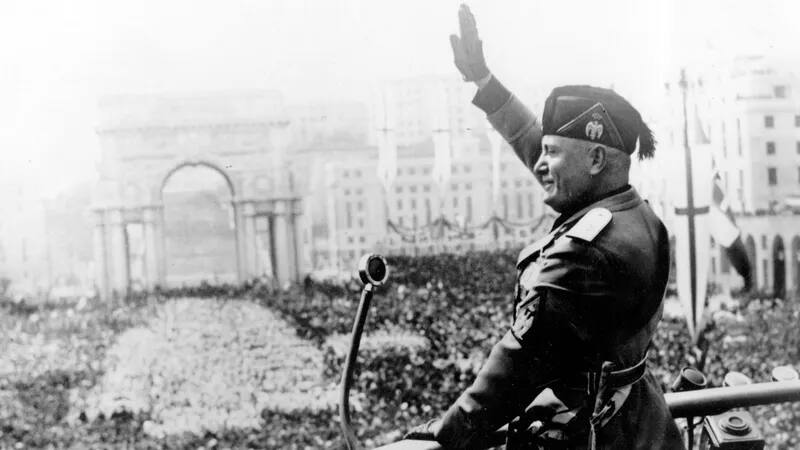
By the end of the war, Italy had lost over 600,000 men and nearly a million were injured. Another quarter of a million were mutilated. The 1919 Treaty of Versailles provided very little compensation for this, and the country entered a period of economic and political turmoil.
The turmoil in the country was exploited by two politically extreme groups – communists and fascists. In the power struggle that followed, the fascists, with Mussolini as the leader, emerge victorious. Mussolini quickly crushed all opposition, making himself a dictator on Christmas Eve in 1925. He became Capo del Governo – head of the government.
Mussolini and the fascists had entered the elections with a populist program that promised measures against corruption, social problems and crime. In the coming years, most of the promises were actually fulfilled. Mussolini initiated several mass projects in agriculture, industry and infrastructure. Even today, Italians often refer to how well the trains kept the timetable during Mussolini's time. Unemployment went down – dramatically. The newly appointed fascist police chief Cesare Mori applied brutal force on the mafia in Sicily. The number of murders in Palermo went down by 90%!
The country experienced a huge economic and industrial boom under Mussolini's leadership. His somewhat brutal and pragmatic rule made a big impact. Mussolini called his ideology "national corporatism," or a third path between capitalism in the west and communism in the east.
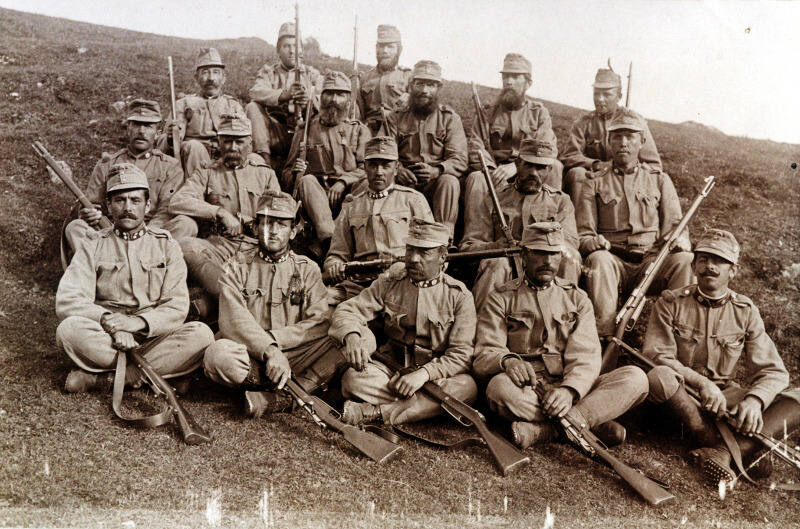
Furthermore, he openly mocked Adolf Hitler's racist and anti-Semitic ideas. At the end of this period, Mussolini was a very popular person in Italy (except for the Communists, who suffered a great deal). It is now that he gets his nickname – "Il Duce" – the leader. (Compare with Hitler and Der Führer)
In the early 1930s, Mussolini begins to invest in the military. He acquires a modern war machine with tanks, battleships and airplanes. This is used, with some success, in Africa. He invades Libya and then Abyssinia (now Ethiopia). The latter would trigger a diplomatic crisis and Italy's exit from the League of Nations, a precursor to the United Nations we know today.
In 1936, to the surprise of many, Mussolini included a defence pact with Hitler's Germany. Now the problems begin. In 1940, Mussolini attacked – inspired by Hitler's successes but without Hitler's permission – France and Greece. That is not going well at all – the Italian troops meet fierce resistance on both fronts. Soon they are on the retreat.
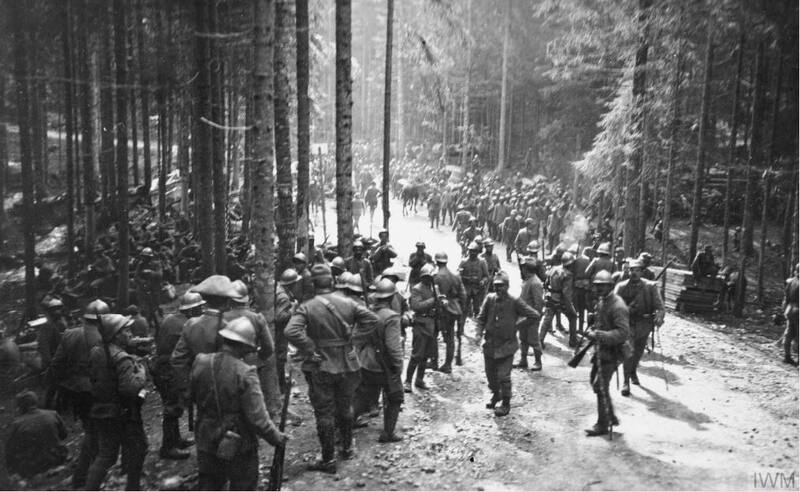
In Greece, his new friend Hitler had to assist with troops to prevent a military disaster. These troops are taken from the Eastern Front, delaying the German advance towards Moscow. Perhaps this will be a contributing reason for Germany's failure in Russia and ultimately their defeat.
World War II is a disaster for Italy. Hundreds of thousands of soldiers are captured in North Africa by the Montgomery Desert Fox. Italian soldiers were not at all interested in building an empire for Mussolini. They would much rather eat pasta, drink wine and live the good life at home.
In 1943, Sicily is invaded by the Allies. The war has now really reached Italy. Six months later, the Allies, through a fierce (and forgotten) war on the Italian peninsula culminating in the Battle of Monte Cassino where Polish troops capture the famous monastery, occupied half the country. In panic, Mussolini is deposed and placed in detention. A few months later, Mussolini was freed by German special forces and reinstated as leader of the northern part of Italy, which was not occupied (yet).
The Second World War was now in its final stages. The German defence of Italy collapsed in early 1945, and Mussolini tried to flee to Switzerland, dressed as a German soldier. He was recognised and captured by Italian resistance by Lake Como. They brought him back to Milan, where he was quickly court martialed for war crimes and immediately executed with his mistress Clara Petacci. Their bodies were hung upside down at a petrol station in Milan.
You should not think that Mussolini, even if he was a fascist, is somehow an unpopular person in Italy today. He is not at all equated with Adolf Hitler. On the contrary, many see him as a national hero who took Italy out of a deep economic crisis into a modern industrialised country. Don't be shocked when you see a portrait of Il Duce in a restaurant. It's perfectly normal. There is even a small memorial in Giulino di Mezzegra, where he was executed.
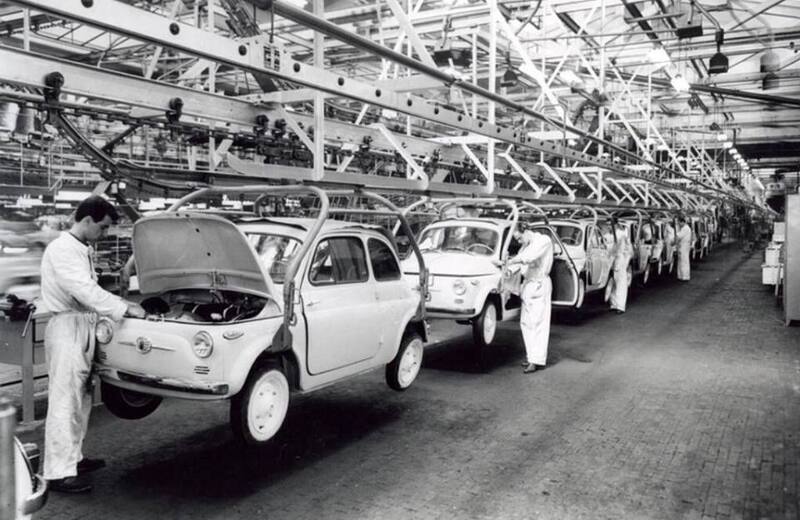
The immediate post-war period was marked by a condition similar to that of the First World War. The economy was in turmoil. The king abdicated. The country became a republic. In the peace agreement signed in 1947, Italy lost, among other things, the Istrian Peninsula (now Slovenia and Croatia), which came to Yugoslavian control.
By 1950, the situation had stabilised. Italy was assisted by the Marshall Plan and joined NATO. In 1957, the country was a founding member of the EEC, which would later become the EU.
The wheels of industry spun faster and faster, and in 1953, production had doubled compared to 1938. Modernisation at Fiat led to the number of cars manufactured per employee quadrupling between 1948 and 1955. During the 1950s and 1960s, the nation enjoyed a long economic boom, and living standards increased dramatically. This was called the "Italian miracle." Annual growth was between 5 and 6 percent; only Germany fared better.
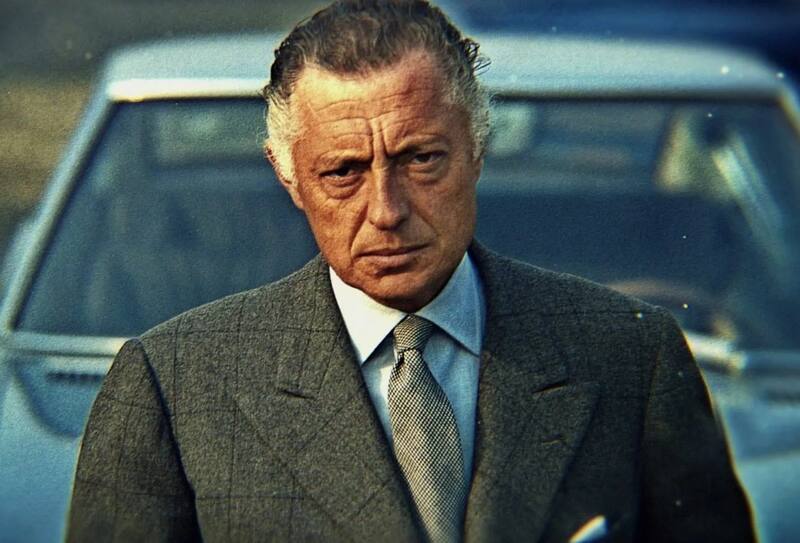
The Agnelli family—which owned Fiat and many other industries—became extremely powerful and wealthy. Agnelli's total contribution to Italy's GDP reached 3% in some years. In 1991, the head of the family—Gianni Agnelli—was appointed permanent senator in the Italian parliament. He also purchased a majority stake in the company Ferrari. Gianni is a very colourful personality in Italy's history, about whom many books have been written.
This period of extreme growth lasted until 1973. Then began a period of problems, extending until the end of the 1980s. Social conflicts, trade unions and a communist party that, using increasingly criminal methods, create disarray and economic stagnation.
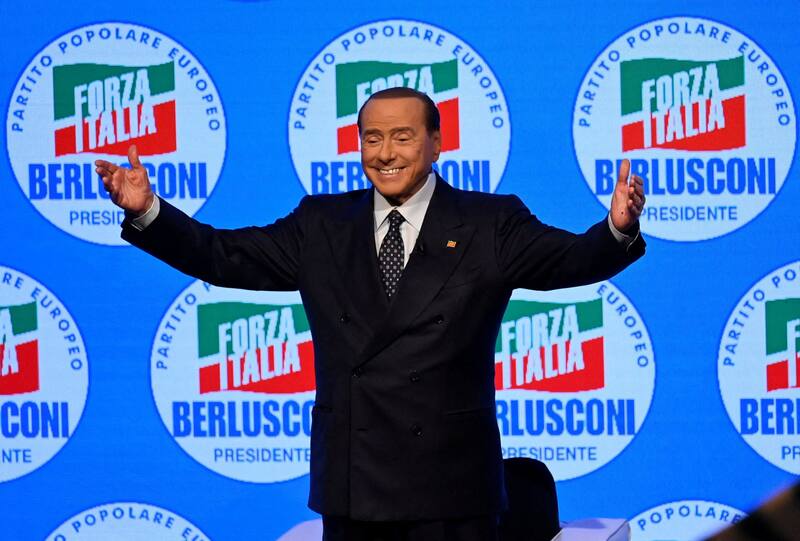
In 1994, industrial magnate Silvio Berlusconi came to power and succeeded to unite both political sides in a broad coalition. Silvio is an Italian self-made Milan man who started as a paperboy. A few decades later, he owned an entire media syndicate and controlled newspapers, radio and TV. Like Gianni Agnelli, he becomes another colourful figure who will shape Italian history and politics for many years.
There you have it. A very simplified version of Italy's history. The most important things about the Roman Empire, the Renaissance and both world wars. Then a little Fiat, Agnelli and Berlusconi sprinkled on top. Congratulations – now you know everything about Italy!

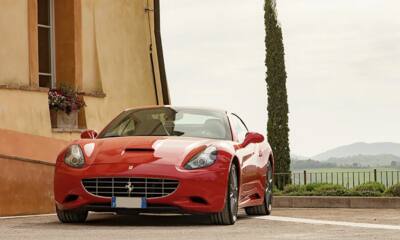










The latest news and stories. All the best roads, hotels and restaurants. Invitations to exciting events. Be the first to know by subscribing to our newsletter.
More news and stories from the world of Gran Turismo








































Our favourite roads, hotels, restaurants and places to visit



Beautiful road trips and famous racing tracks since 2002. Supercars only.
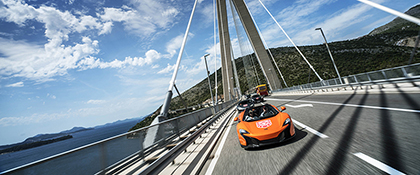
While our head offices are in Geneva, Switzerland, the team is spread throughout Europe: Sweden, Poland, Italy and Croatia. Please select the appropriate team member to contact below.
For general enquiries, you can always use info@granturismo.org. For event registrations, please use registry@granturismo.org.